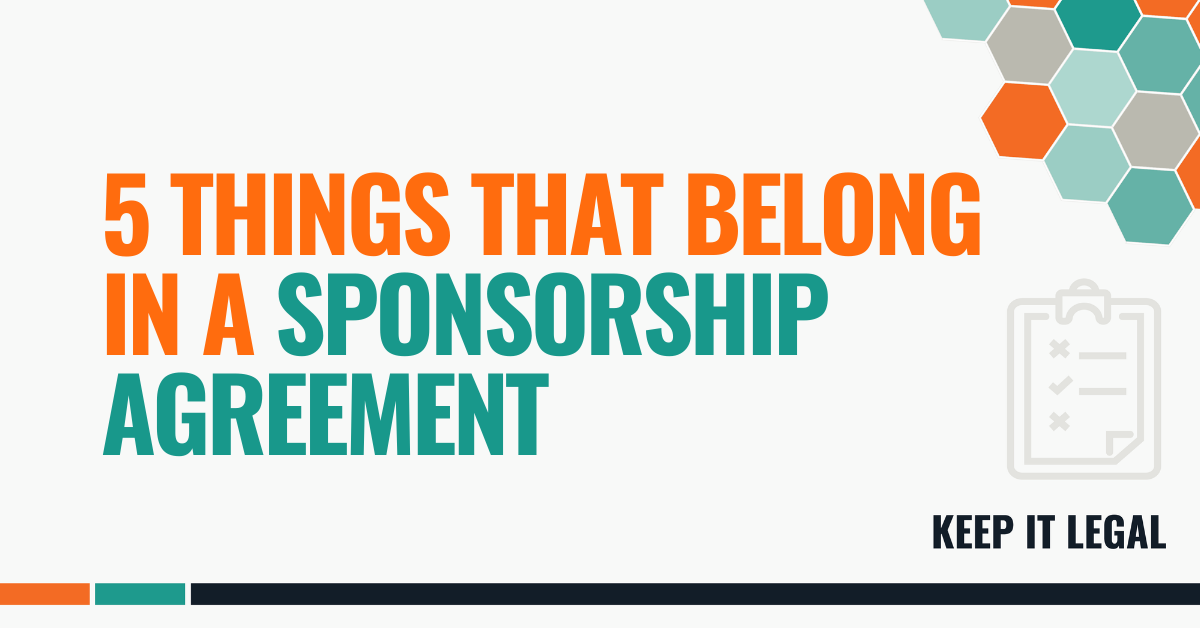Sponsorships are a common form of advertisement on social media as well as new media (such as podcasts and video streams). A sponsor is a person or company who pays to support someone else and receives something in return, like the right to a podcast advertisement. Anyone who is or works with a sponsor should have a written agreement that describes the terms of the business relationship. This post will identify the top 5 things that belong in a Sponsorship Agreement.
I’ve written in the past about related topics, such as Legal Rules for Influencers on Social Media and Social Media Law: Celebrity Endorsements. Those same rules apply, so be sure that you’re aware of the rules and laws that govern advertisements. A sponsorship is just a type of advertisement, so don’t assume that the rules don’t apply.
Here are 5 Things That Belong in a Sponsorship Agreement:
- The Term – when the sponsorship begins and ends. Is the Sponsorship Agreement for a certain amount of time, a certain number of podcasts or video streams, or is it ongoing until one party terminates the agreement?
- Compensation – how much is the sponsor paying? When is payment due? Is payment contingent on some type of factor, e.g. the number of sponsor’s products that are sold as a result of the sponsorship?
- Materials – is the sponsor providing free or discounted products or materials? How many, and how can they be used? Can they be resold?
- Intellectual Property – who has the right to use each party’s trademarks, such as logos, brand names, and taglines? Who owns the copyright to any unique content that is created as part of the sponsorship (such as an advertisement)?
- Exclusivity – is either party prevented from entering into a similar agreement with someone else during the term of the Sponsorship Agreement? For example, the sponsor may want to be the sole advertiser on a social media channel, or they may want to ensure that even if there are other sponsors, none of them are in a competing business during the term of the Sponsorship Agreement.
Of course, Sponsorship Agreements are business contracts, so they should also include the types of clauses that appear in most other contracts, such as jurisdiction (where a dispute will be heard), dispute resolution (will the dispute be resolved through arbitration, litigation, or some other means?), how it can be terminated, and so on. This is not an exclusive list. But it’s a good start to get you thinking about how to put together a strong and effective Sponsorship Agreement.


